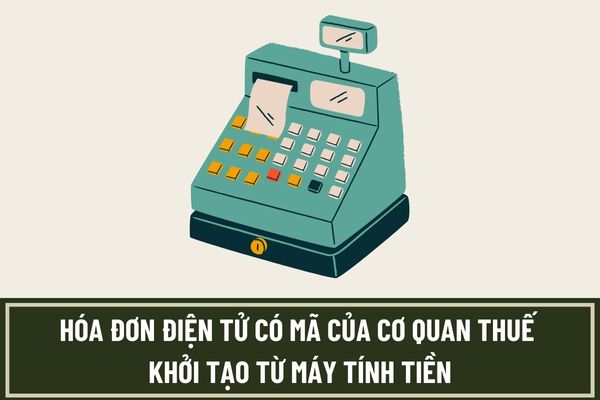How to register for using authenticated e-invoices generated from POS cash registers in Vietnam?
How to register for using authenticated e-invoices generated from POS cash registers in Vietnam?
In Section 4 of Official Dispatch 15461/CTTPHCM-TTHT of 2022, the Ho Chi Minh City Tax Department provides guidance on how to register for using electronic invoices generated from cash registers as follows:
Registration for new or changing information is to be done according to Form No. 01/DKTD-HDDT issued along with Decree 123/2020/ND-CP.
- For taxpayers who are using electronic invoices for the first time and fall under the subject to use electronic invoices with the tax authority code generated from cash registers, registration must be done through a provider of electronic invoice services.
- For taxpayers who have successfully registered to use electronic invoices and wish to register to use electronic invoices with the tax authority code generated from cash registers, they should alter the registration information through the service provider or on the website https://hoadondientu.gdt.gov.vn.

How to register for using authenticated e-invoices generated from POS cash registers in Vietnam?
Who is eligible to use authenticated e-invoices generated from POS cash registers in Vietnam?
According to Clause 2, Article 8 of Circular 78/2021/TT-BTC, it is stipulated as follows:
authenticated e-invoices generated from POS cash registers connected to transfer electronic data to the tax authority:
1. Authenticated e-invoices generated from POS cash registers connected to transfer electronic data to the tax authority must comply with the principles stipulated in Article 11 of Decree No. 123/2020/ND-CP.
2. Enterprises, business households, and individuals paying taxes by the declaration method and having business activities providing goods and services directly to consumers according to the following business models (shopping centers; supermarkets; retail of consumer goods; dining; restaurants; hotels; retail of pharmaceuticals; entertainment and other services) can choose to use electronic invoices generated from cash registers connected to transfer electronic data to the tax authority or electronic invoices with codes or without codes.
Thus, enterprises, business households, and individuals paying taxes by the declaration method and having business activities providing goods and services directly to consumers, according to one of the following business models, can choose to use electronic invoices generated from cash registers connected to transfer electronic data to the tax authority or electronic invoices with codes or without codes:
- Shopping centers;- Supermarkets;- Retail of consumer goods;- Dining;- Restaurants;- Hotels;- Retail of pharmaceuticals;- Entertainment services;- Other services.
According to Clause 6, Article 8 of Circular 78/2021/TT-BTC about the responsibilities of sellers when using authenticated e-invoices generated from POS cash registers connected to transfer electronic data to the tax authority as follows:
- Register to use authenticated e-invoices generated from POS cash registers connected to transfer electronic data to the tax authority as stipulated in Article 15 of Decree 123/2020/ND-CP;
- Issue authenticated e-invoices generated from POS cash registers according to the stipulations in Article 11 of Decree 123/2020/ND-CP and Article 8 of Circular 78/2021/TT-BTC;
- Ensure the use of the unique tax authority code string when issuing authenticated e-invoices generated from POS cash registers connected to transfer electronic data to the tax authority;
- Transfer the created electronic invoice data with tax authority codes from cash registers to the tax authority within the same day through the electronic data transmission, reception, and storage service provider.
What are the contents of an e-invoice generated from POS cash register in Vietnam?
According to Clause 3, Article 8 of Circular 78/2021/TT-BTC, the content of an e-invoice generated from POS cash register is stipulated as follows:
Authenticated e-invoices generated from POS cash registers connected to transfer electronic data to the tax authority include the following contents:
- Name, address, tax code of the seller;
- Buyer's information if requested by the buyer (personal identification number or tax code);
- Name of goods, services, unit price, quantity, payment price. In cases where the organization or enterprise pays taxes by the credit method, the pre-tax price, VAT rate, VAT amount, and total payment amount including VAT must be clearly stated;
- Time of invoice issuance;
- Tax authority code.
LawNet